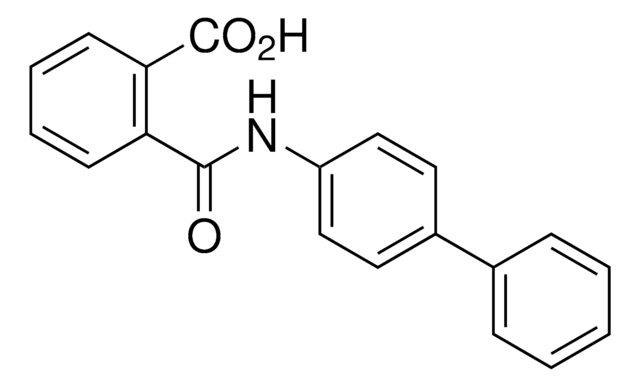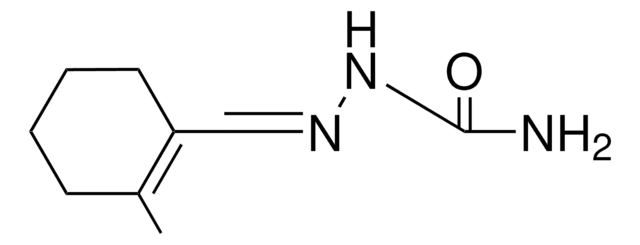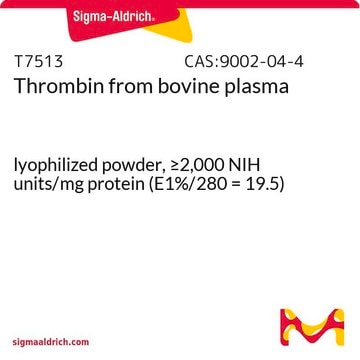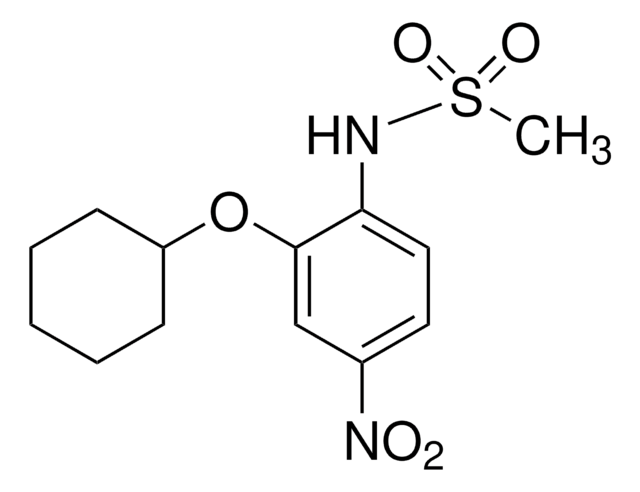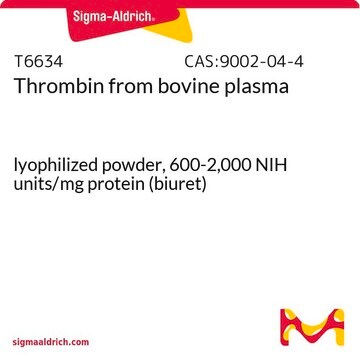SML0370
Kartogenin
≥98% (HPLC)
Synonyme(s) :
2-[(Biphenyl-4-yl)carbamoyl]benzoic acid, 4′-Phenyl-phthalanilic acid (8CI), KGN
About This Item
Produits recommandés
Niveau de qualité
Pureté
≥98% (HPLC)
Forme
powder
Solubilité
DMSO: >15 mg/mL
Température de stockage
room temp
Chaîne SMILES
O=C(NC1=CC=C(C2=CC=CC=C2)C=C1)C(C=CC=C3)=C3C(O)=O
InChI
1S/C20H15NO3/c22-19(17-8-4-5-9-18(17)20(23)24)21-16-12-10-15(11-13-16)14-6-2-1-3-7-14/h1-13H,(H,21,22)(H,23,24)
Clé InChI
SLUINPGXGFUMLL-UHFFFAOYSA-N
Actions biochimiques/physiologiques
Code de la classe de stockage
11 - Combustible Solids
Classe de danger pour l'eau (WGK)
WGK 3
Certificats d'analyse (COA)
Recherchez un Certificats d'analyse (COA) en saisissant le numéro de lot du produit. Les numéros de lot figurent sur l'étiquette du produit après les mots "Lot" ou "Batch".
Déjà en possession de ce produit ?
Retrouvez la documentation relative aux produits que vous avez récemment achetés dans la Bibliothèque de documents.
Les clients ont également consulté
Notre équipe de scientifiques dispose d'une expérience dans tous les secteurs de la recherche, notamment en sciences de la vie, science des matériaux, synthèse chimique, chromatographie, analyse et dans de nombreux autres domaines..
Contacter notre Service technique